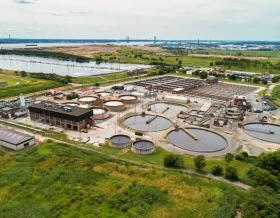What needs to change to deliver inclusive growth? Leaders from industry, local government and non-government organizations recently met at the 11th Jacobs Aston Conference in Birmingham, U.K., to understand what inclusive growth really means and the actions required to deliver real change on the ground.
Inclusive growth has emerged as the new model for economic growth and work is underway across the U.K. and the world to advance this new agenda.
There is now a substantial body of international evidence which shows that increased growth and increased equality are not competing objectives but rather are mutually reinforcing, in other words, if we have a fairer society we will also have a more productive and competitive economy.
The Organisation for Economic Co-operation and Development (OECD) defines inclusive growth as: ‘Economic growth that creates opportunity for all segments of the population and distributes the dividends of increased prosperity in both monetary and non-monetary terms’. Put simply, inclusive growth is about ensuring economic growth benefits everyone.
Inclusive growth is seen as the solution to one of the biggest challenges being faced by advanced economies around the world – that of rising inequalities.
In many OECD countries the gap between rich and poor has widened – and it’s not just income. In just about every area of life that matters for well-being – whether educational attainment, job prospects, health status or life expectancy – outcomes are still disproportionally determined by socio-economic status, gender or the places in which people live.
A study* undertaken by the OECD in 2014 has estimated that income inequality in the U.K. reduced Gross Domestic Product per capita by nine percentage points between 1990 and 2010. Tackling inequalities, therefore, is not just the right thing to do – it’s the economically smart thing to do.
“The challenge for us all is to put the theory into practice and ensure inclusive growth permeates all strategies, policies and projects,” said Jacobs Director of Economics and Social Value Dr. Jennifer Anderson. “This requires a fundamental rethinking and reframing of policy and investment choices to meet our economic and social challenges. That means moving away from the current model of ‘grow now and redistribute later.’ We know that two-step model doesn’t work. We need to move to a new model where economic and social policy is integrated. That will require us to work across departments, agencies, budgets and professions and there are some excellent examples where this is already happening in the new combined authorities in the U.K.
“It also requires recognition of the key role of regional and local policies and projects in delivering inclusive growth. This reflects the fact that inclusive growth isn’t delivered at the international or national level; it’s delivered at the local level and regional and local policies are key to address the spatial differences in income and well-being.”
This is one of the reasons why investment in transport and digital infrastructure has been identified as one area that is critical for inclusive growth. Transport projects connect lagging regions and connect the people in those regions, not only to jobs but to all the facilities and services that contribute to well-being. Given the scale of public investment that is going into transport and digital infrastructure in the U.K., it is essential that this investment is refocused on delivering inclusive growth rather than being focused solely on economic growth.
Jennifer Anderson noted: “An inclusive growth strategy will differ depending on the specific challenges in specific regions, cities and towns. It requires us to be clear sighted about which aspects of inclusive growth are most critical in our locality, what capacity we have to change the outcomes, and which policies and projects will maximize the contribution to inclusive growth. This means reassessing the way in which we identify, appraise, design and deliver policies and projects so that they not only contribute to economic growth but also create inclusion and ultimately, maximize total societal well-being.”
To that end, Jacobs has been working in partnership with Simetrica in the U.K. to develop a new, innovative measurement framework to support clients in local, regional and central government operationalize the concept of inclusive growth. This new framework – SocialValueX – is aligned with the guidance set out in the U.K. Treasury Green Book and uses the latest cutting edge valuation methods and metrics to ensure that the full impacts (economic, environment and wider societal impacts) of policies and projects can be assessed.
Jacobs is working with clients to advance the inclusive growth agenda by applying this framework to major infrastructure projects in the U.K. and design projects that unleash the potential of individuals, communities, cities and regions to contribute to growth and to share in the benefits of that growth.
“Inclusive growth and investment in infrastructure go hand in hand,” said Jacobs Buildings and Infrastructure Europe Senior Vice President and General Manager Donald Morrison. “Infrastructure plays such a significant part in unlocking growth in areas where poor connectivity is holding it back. Not only by linking travel to work but also by using digital infrastructure to connect rural communities and enable new businesses to locate and grow there, opening up corridors for housing developments, and enabling corresponding supply chains to develop around them.
“This ability to link local communities to employment opportunities is crucial to ensuring that as many people as possible can share in the growing prosperity of a particular region.
“The theme of this year’s conference is gaining broad-based support and I was glad that Jacobs and the speakers were able to provide the context to this but also practical ways that our clients can embrace this agenda.”
Read more on page 24 of 'Holyrood'.
* Cingano, F. (2014), "Trends in Income Inequality and its Impact on Economic Growth", OECD Social, Employment and Migration Working Papers, No. 163, OECD Publishing, Paris, http://dx.doi.org/10.1787/5jxrjncwxv6j-en.
























































